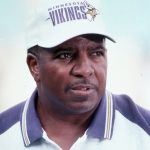The past few years have been rough for the game of football, at the collegiate and professional level. With endless coverage of scandals on and off the field at several major powerhouse universities, and with the constant labor strife in the NFL between the players and owners over their share of billion-dollar pies, the negative aspects associated with the game seem to garner more attention than the individual contests these days.
But, I would like to call on fans of the game of football and fans of American history and ask them to pause a moment as we head into the football season. Take a moment and recognize the anniversary of one of the greatest and perhaps purest moments of team glory in the history of football. This year, 2012, marks the 100th anniversary of the Carlisle Indian School winning college football’s national championship title.
What’s that you say, you’ve never heard of the Carlisle Indian School and you most certainly never knew that they won a national championship in football? Well, that would be a shame if you are not familiar with their accomplishments. It’s something all of us should know, whether or not we are football fans. It is one more great story in the tale that is America.
At a time when football has become an endless cash machine for not only owners of professional teams and universities playing in major conferences, as well as for the television networks, advertisers and all those who make their livings from the games at varying levels, we should all pay homage to a truly amazing team from the Carlisle Indian School led by America’s greatest athlete Jim Thorpe, and one of the game’s most famed and innovative early coaches Pop Warner.
This team from a tiny school located in bucolic Cumberland County, Pennsylvania was comprised of numerous players – including Jim Thorpe who had never played organized football before they came to Carlisle. Yet, the team rose to glory defeating all of the traditional powerhouse programs of that day including Harvard and Army, which was led by a young back named Dwight Eisenhower, and claimed the title of National Champions.
Jim Thorpe and his teammates most certainly didn’t enjoy any special privileges as successful football players do today. In fact, they were routinely subjected to discrimination by their own school, where white administrators and instructors were systematically trying to rid them of the Native American customs and heritage.
They were also discriminated against by other teams and students at opposing universities that clearly thought them to be inferior, not just as football players, but as human beings.
These proud young men had no special dorms, individual tutors, first class travel accommodations, private workout facilities or fancy meals before or after their games. They were simply a team who walked out onto the field determined to be better football players than their opponents.
They were not worried about strutting for the cameras or wondering what agents might be watching. The goal of the Carlisle Indian School players to demonstrate through their actions on the field that they were the best team in the game during that 1912 national championship season represented the purest essence of sports, and should serve as a model for all of our athletes of today.
The Carlisle Indian School closed six short years after the football team won their national championship. Today, the grounds and some of the original buildings of the school where Jim Thorpe, his teammates and Pop Warner rose to collegiate football glory, is the site of the U.S. Army War College.
This fact and the passage of time make it easy to forget the accomplishments of these great players on the gridiron. But, I hope that in the coming days as you turn on your television and watch your team run out onto the field to blaring music and smoke machines, you will remember how 100 years ago the mightiest football team in the nation was comprised entirely of a group of proud Native American athletes from Carlisle, Pennsylvania.
James DeBord is a writer and researcher who resides in Lancaster with his wife and three children. He has worked professionally in various executive management positions over the years in the corporate, non-profit and public policy sectors.





